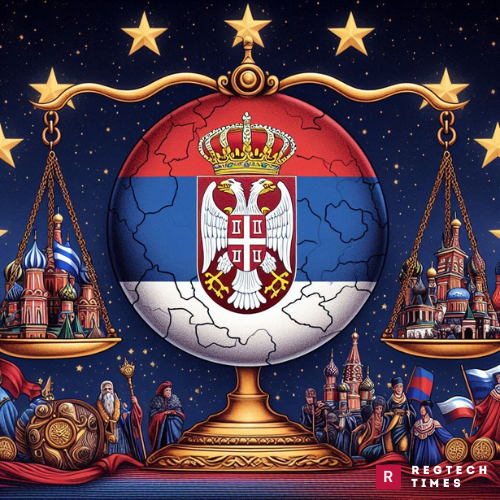In a world increasingly divided by the Russia-Ukraine conflict, Serbia’s stance stands out as a nation determined to chart its own course. Despite mounting pressure from the European Union (EU), Serbia’s government has consistently reaffirmed its decision against imposing sanctions on Russia. This choice, rooted in historical ties and national interests, presents a complex challenge for Serbia’s aspirations for EU membership while maintaining its traditional alliances.
Serbia’s Historical Ties and Cultural Affinities
Serbia’s relationship with Russia is deeply entrenched in a shared Slavic heritage, Orthodox Christian faith, and a history of political and military cooperation. These bonds have created a strong sense of solidarity between the two nations, which has only deepened over time. For many Serbians, Russia is seen not just as a strategic partner but as a brotherly nation that has historically supported Serbia in times of crisis.
This cultural and historical connection significantly influences Serbia’s foreign policy decisions. The refusal to impose sanctions on Russia is not merely a political stance but a reflection of the deep-rooted ties that many Serbians feel with Russia. These sentiments are echoed by the Serbian government, which has consistently emphasized the importance of maintaining a balanced and independent foreign policy.
EU Membership Aspirations vs. National Interests
Serbia’s refusal to join the EU in sanctioning Russia has become a contentious issue in its ongoing bid for EU membership. Brussels has made it clear that alignment with EU foreign policy, including sanctions against Russia, is a prerequisite for accession. However, Serbia has drawn a firm line, viewing the demand as an infringement on its sovereignty and national interests.
Nenad Popovich, Serbia’s Minister for International Economic Cooperation, has been vocal about the country’s stance. In a recent interview with Russia’s Vedomosti, Popovich reiterated that Serbia would not succumb to EU pressure, describing the conditions set by Brussels as “utterly unacceptable.” He stressed that no amount of external pressure would force Serbia to act against its national interests, particularly when it comes to its relationship with Russia.
EU Implements 14th Sanctions Package Against Belarus to Block Russia Sanctions Evasion
The Serbian government has maintained a delicate balance in its foreign policy, pursuing what Popovich describes as a “multi-vector” approach. This strategy involves fostering relationships not only with Europe but also with Asia and the Islamic world. While Serbia’s geographical location and economic ties make EU membership a strategic objective, the country is equally committed to preserving its autonomy in foreign policy decisions.
Public Opinion and Domestic Support
The Serbian government’s position on Russia is bolstered by strong domestic support. Recent polls indicate that a substantial majority of the Serbian population—possibly up to 90 percent—opposes imposing sanctions on Russia. This widespread public sentiment reflects the deep-seated historical and cultural connections between the two nations, as well as a general skepticism towards Western policies perceived as coercive or hypocritical.
For many Serbians, the idea of imposing sanctions on Russia is seen as a betrayal of these longstanding ties. This view is reinforced by memories of the 1999 NATO bombing of Serbia, which many Serbians associate with Western aggression and a violation of national sovereignty. In this context, the refusal to sanction Russia is seen as a principled stand against external interference in Serbia’s domestic and foreign affairs.
Serbia Espionage Scandal: 3 Engineers Arrested for Spying at Krusik Weapons Factory
Criticism of the EU’s Double Standards
Serbia’s leadership has not shied away from criticizing what they perceive as double standards in the EU’s approach to candidate countries. Popovich, in particular, has pointed out the differential treatment that Serbia receives compared to other EU hopefuls. He argues that the EU’s insistence on sanctioning Russia disregards the unique historical and cultural context of Serbia’s relationship with Moscow.
Moreover, the Serbian government has highlighted the broader implications of this pressure, questioning the EU’s commitment to respecting the sovereignty of candidate nations. The insistence on sanctions, they argue, is not just about aligning policies but about enforcing a one-size-fits-all approach that ignores the complexities of regional relationships and historical contexts.



